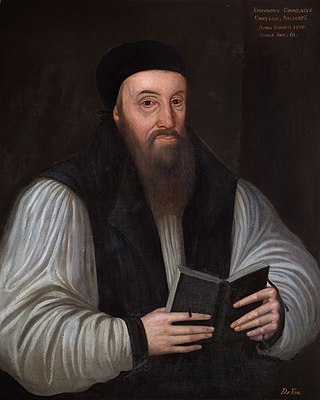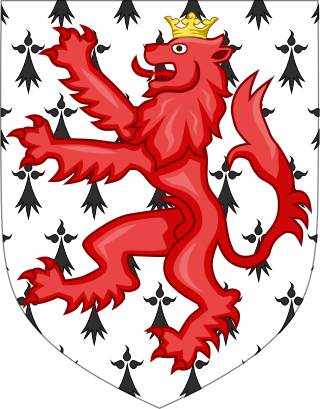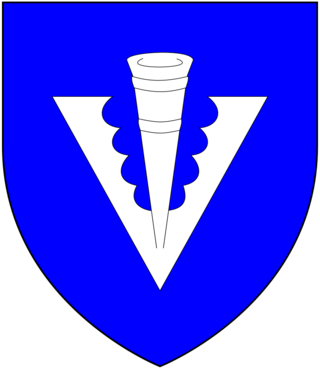Related Research Articles

Lancelot Andrewes was an English bishop and scholar, who held high positions in the Church of England during the reigns of Elizabeth I and James I. During the latter's reign, Andrewes served successively as Bishop of Chichester, of Ely, and of Winchester and oversaw the translation of the King James Version of the Bible. In the Church of England he is commemorated on 25 September with a lesser festival.

Richard Bancroft was an English churchman, Archbishop of Canterbury from 1604 to 1610 and "chief overseer" of the King James Bible.

Edmund Grindal was Bishop of London, Archbishop of York, and Archbishop of Canterbury during the reign of Elizabeth I. Though born far from the centres of political and religious power, he had risen rapidly in the church during the reign of Edward VI, culminating in his nomination as Bishop of London. However, the death of the King prevented his taking up the post, and along with other Marian exiles, he was a supporter of Calvinist Puritanism. Grindal sought refuge in continental Europe during the reign of Mary I. Upon Elizabeth's accession, Grindal returned and resumed his rise in the church, culminating in his appointment to the highest office.
Thomas Thirlby, was the first and only bishop of Westminster (1540–50), and afterwards successively bishop of Norwich (1550–54) and bishop of Ely (1554–59). While he acquiesced in the Henrician schism, with its rejection in principle of the Roman papacy, he remained otherwise loyal to the doctrine of the Roman Catholic Church during the English Reformation.

The Dean of St Patrick's Cathedral is the senior cleric of the Protestant St Patrick's Cathedral, Dublin, elected by the chapter of the cathedral. The office was created in 1219 or 1220, by one of several charters granted to the cathedral by Archbishop Henry de Loundres between 1218 and 1220.
John Scory was an English Dominican friar who later became a bishop in the Church of England.
Christopher Goodman BD (1520–1603) was an English reforming clergyman and writer. He was a Marian exile, who left England to escape persecution during the counter-reformation in the reign of Queen Mary I of England. He was the author of a work on limits to obedience to rulers, and a contributor to the Geneva Bible. He was a friend of John Knox, and on Mary's death went to Scotland, later returning to England where he failed to conform.
Henry Cole was a senior English Roman Catholic churchman and academic.
John White was a Headmaster and Warden of Winchester College during the English Reformation who, remaining staunchly Roman Catholic in duty to his mentor Stephen Gardiner, became Bishop of Lincoln and finally Bishop of Winchester during the reign of Queen Mary. For several years he led the college successfully through very difficult circumstances. A capable if somewhat scholastic composer of Latin verse, he embraced the rule of Philip and Mary enthusiastically and vigorously opposed the Reformation theology.
John Harpsfield (1516–1578) was an English Catholic controversialist and humanist.
Walter Haddon LL.D. (1515–1572) was an English civil lawyer, much involved in church and university affairs under Edward VI, Queen Mary, and Elizabeth I. He was a University of Cambridge humanist and reformer, and was highly reputed in his time as a Latinist. He sat as an MP during the reigns of Mary and Elizabeth. His controversial exchange with the Portuguese historian Jerónimo Osório attracted international attention partly on account of the scholarly reputations of the protagonists.
Perceval Wiburn or Wyburn (Percival) (1533?–1606?) was an English clergyman, a Marian exile, suspected nonconformist and Puritan, and polemical opponent of Robert Parsons.
Nicholas Robinson was a Welsh Bishop of Bangor and correspondent of Lord William Cecil, Sir Francis Walsingham, and Robert Dudley, 1st Earl of Leicester. He was also a dean and vice-president of a college at Queens' College, Cambridge.
Richard Cheyney was an English churchman, bishop of Gloucester from 1562. Opposed to Calvinism, he was an isolated and embattled bishop of the reign of Elizabeth, though able to keep his see.

James Turberville was an English cleric who served as Bishop of Exeter from 1555 to 1559.

William Bradbridge (1501–1578) was an English bishop of Exeter.
Benjamin Heydon or Haydon (1567–1607) was the Headmaster at Winchester College from 1596 to 1601/1602, a JP for Somerset, and Dean of Wells Cathedral from 1602 until his death in 1607.
Roger Kelke (1524–1576) was an English churchman and academic, a Marian exile and Master of Magdalene College, Cambridge from 1558 and Archdeacon of Stow from 1563.
Francis Newton was an English clergyman who served as Dean of the Winchester Cathedral from 1565 until his death in 1572.
William Fleshmonger(? -1541/42), the son of a Winchester College tenant, was born in Hambledon, Hampshire. He was a Doctor of Canon Law and Dean of Chichester during the turmoil of the English Reformation.
References
- ↑ Bludworth-Brakell Pages 142-170 Alumni Oxonienses 1500-1714
- ↑ Kirby, Thomas Frederick (1888). Winchester scholars. A list of the wardens, fellows, and scholars of Saint Mary college of Winchester, near Winchester, commonly called Winchester college. London: H. Frowde.
 This article incorporates text from a publication now in the public domain : "Boxall, John". Dictionary of National Biography . London: Smith, Elder & Co. 1885–1900.
This article incorporates text from a publication now in the public domain : "Boxall, John". Dictionary of National Biography . London: Smith, Elder & Co. 1885–1900.